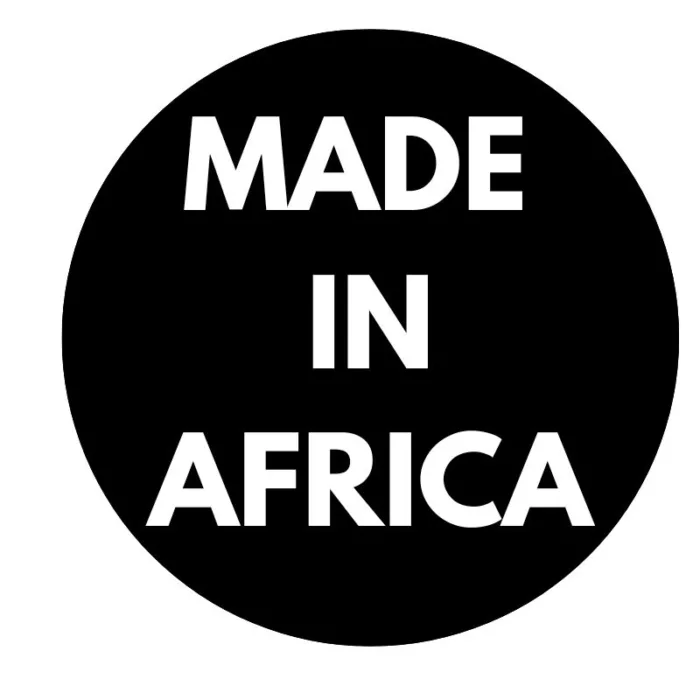Rising with Pride: The Strength of “Made in Africa” and the Promise of “Africa Quality”. The African continent, a land of immense diversity and cultural richness, finds itself at a pivotal moment in its economic history. For too long, the prevailing narrative has positioned Africa as a mere supplier of raw materials, with limited participation in global value chains. Today, it is time to rewrite that story, to strongly embrace the power of “Made in Africa” as a hallmark of quality and authenticity, and to consolidate an “Africa Quality” brand that resonates powerfully in international markets. It is not simply about producing, but about creating, innovating, and offering products and services that reflect the continent’s richness and potential, building an image that speaks of excellence, sustainability, and a renewed pride in all that Africa has to offer. “Made in Africa” should not be just a label, but a declaration of principles, a commitment to quality, and an invitation to the world to discover the true essence of Africa: its potential, its resilience, and its capacity to create.


The Transformative Power of “Made in Africa” in Industry
Africa’s industrialization is essential for sustainable economic growth, and in this process, “Made in Africa” must become a symbol of quality and added value. It is crucial to transcend the reliance on exporting unprocessed raw materials and move towards a manufacturing sector that transforms those resources into high-quality finished products. Consider, for example, the leather industry. Instead of exporting only raw hides, countries like Ethiopia, with a long tradition in leather production, can invest in creating factories that produce high-end leather goods such as shoes, bags, and clothing. This strategic shift involves investment in modern technologies, training a skilled workforce, and adopting production standards that meet the demands of the international market. It’s not just about manufacturing products, but about creating value, generating employment, and building a reputation based on quality and innovation. “Made in Africa” in industry must be synonymous with efficient production, innovative design, and products that satisfy the needs of the most demanding consumers. The goal is that when someone sees a product with the “Made in Africa” label, they immediately recognize the quality and commitment behind it.
“Made in Africa” in the Services Sector: A Hallmark of Professionalism and Excellence
The services sector, often underestimated, is a fundamental engine for economic development in the 21st century, and Africa is no exception. “Made in Africa” in this context must represent a commitment to professionalism, efficiency, and excellence in service delivery. From the rise of tech companies in Lagos and Nairobi to the expansion of financial institutions in Johannesburg, Africa is demonstrating its ability to compete in the global services market. Consider, for instance, the growing consultancy sector. African firms are emerging with a deep understanding of the continent’s challenges and opportunities, offering innovative and tailored solutions to local needs. For “Made in Africa” in the services sector to be a mark of quality, continuous investment in the education and training of professionals, the adoption of digital technologies to improve efficiency and reach, and an unwavering commitment to customer satisfaction are essential. “Made in Africa” in services should not only mean that services are provided in Africa but that they are offered with a quality and professionalism that distinguishes them from the rest of the world, creating a seal of excellence that inspires trust and attracts clients and partners from around the globe.
“Made in Africa” in Trade: Connecting the Continent with the World
Trade is the lifeblood that enables African products and services to transcend borders and reach global markets. In this context, “Made in Africa” must be the foundation of a trade strategy that fosters both intra-African trade and exports to international markets. The African Continental Free Trade Area (AfCFTA) is a crucial step towards eliminating trade barriers and creating a common market that allows African companies to compete on a level playing field. Imagine the potential of a sector like agro-industry. Africa possesses vast stretches of fertile land and a great diversity of agricultural products. For these products to compete in the global market, “Made in Africa” in trade must translate into the adoption of sustainable agricultural practices, certification of product quality, the creation of efficient value chains, and the promotion of fair trade that benefits local producers. The goal is that “Made in Africa” products are recognized worldwide for their quality, authenticity, and commitment to sustainability, connecting the continent with the rest of the world in a way that drives economic growth and social development. “Made in Africa” in trade must be synonymous with quality, efficiency, and competitiveness in the global marketplace.
“Made in Africa” in Tourism: An Authentic and Memorable Experience
Tourism, when managed sustainably and responsibly, has the potential to transform local economies and generate employment across Africa. “Made in Africa” in the tourism sector must be synonymous with authentic, memorable, and high-quality experiences. Consider, for example, the rich history and culture of countries like Ghana or Senegal, or the breathtaking landscapes of Tanzania or Namibia. “Made in Africa” in tourism implies that the visitor’s experience goes beyond simply enjoying a landscape or a monument, and becomes involved in the local culture and traditions, creating a positive economic impact on local communities. This requires investment in quality infrastructure, the training of qualified tourist guides, and the promotion of tourism that respects the environment and local culture. “Made in Africa” in tourism should not only mean that the destination is in Africa but that it offers a unique and authentic experience, which resonates in the visitor’s memory long after their departure. It is an opportunity to show the world the diversity, beauty, and charm that Africa has to offer, and at the same time, generate income and jobs that drive the continent’s sustainable development. “Made in Africa” in tourism must represent an authentic experience, of high quality and a positive impact on communities.
The Commitment to “Africa Quality” as a Foundation
Ultimately, the success of the “Made in Africa” brand depends on an unwavering commitment to quality across all sectors of the economy. “Africa Quality” is not just a motto, but an imperative that must guide every step of the way. This involves the implementation of rigorous production standards, the adoption of innovative technologies, the training of a skilled workforce, the fostering of a culture of quality, and the promotion of ethical and transparent business practices. “Africa Quality” is the foundation upon which the continent’s economic future will be built, a future where “Made in Africa” is a mark of excellence that resonates powerfully around the world. It is a call to action, a commitment to excellence, and an opportunity to show the world the greatness of Africa and its capacity to create a prosperous and sustainable future.
The Challenge of Coordination and the Imperative of Unity
It is evident, however, that the challenges of coordinating policies across the diverse nations of Africa are not to be underestimated. The task of harmonizing standards, regulations, and economic strategies is complex and requires sustained commitment from all stakeholders. While each country has its own unique priorities and circumstances, it is also crucial to acknowledge that competing with economic powerhouses like India, China, the USA, or Europe, with their homogenous markets and coordinated policies, is simply not possible without greater unity and cooperation. A unified and cohesive approach is not just a desirable goal, but a strategic imperative for Africa to truly compete and thrive in the global marketplace. Only through concerted efforts to build a truly integrated African economy, unified by shared goals and driven by the power of “Made in Africa” and “Africa Quality”, can the continent realize its full potential on the world stage.
#MadeInAfrica, #AfricaQuality, #AfricanIndustry, #AfricanTrade, #AfricanTourism, #SustainableAfrica, #InvestInAfrica, #BuyAfrican, #SupportAfricanBusinesses, #AfricanInnovation, #GlobalAfrica, #TradeWithAfrica, #VisitAfrica, #QualityMadeInAfrica, #EmpowerAfrica

Team ProdAfrica
team@prodafrica.com